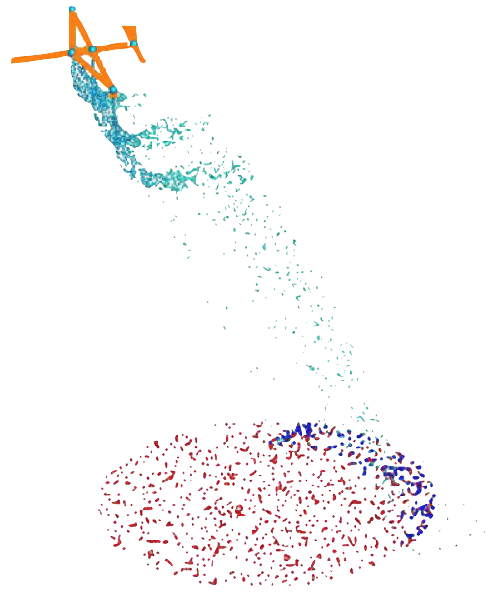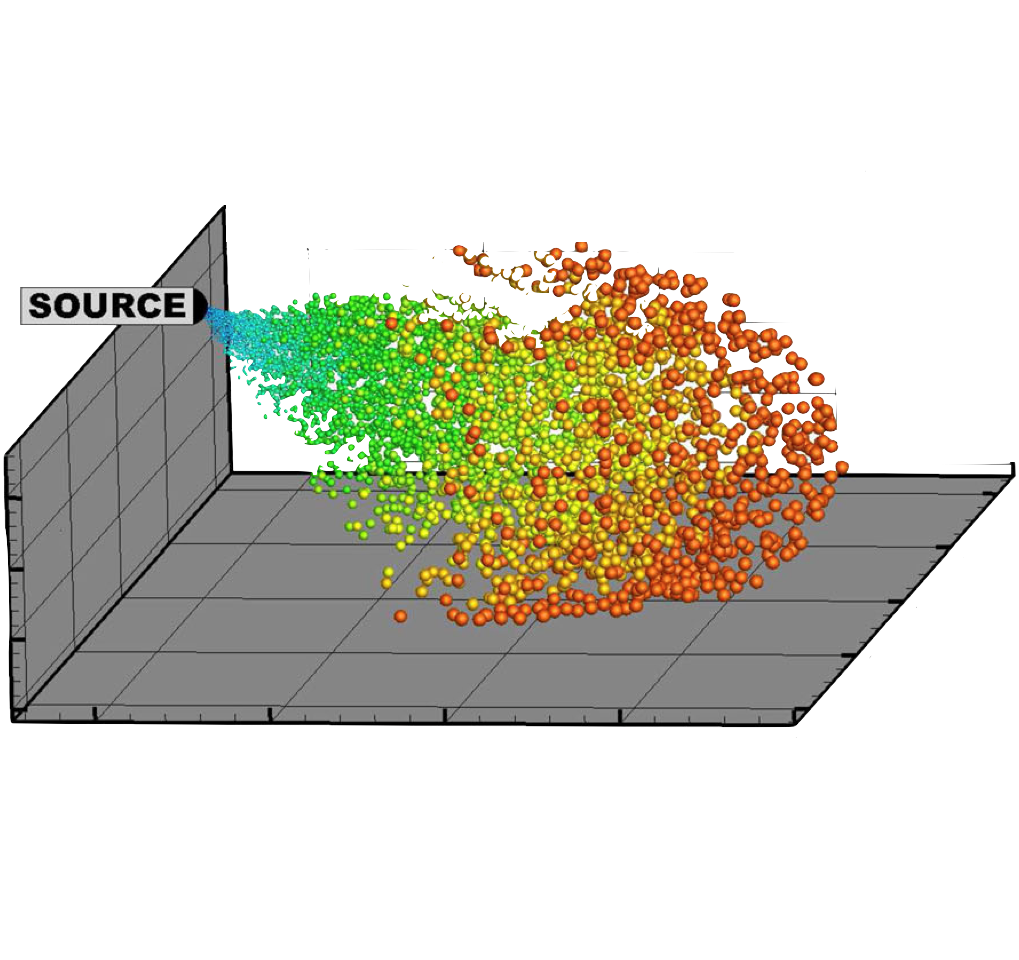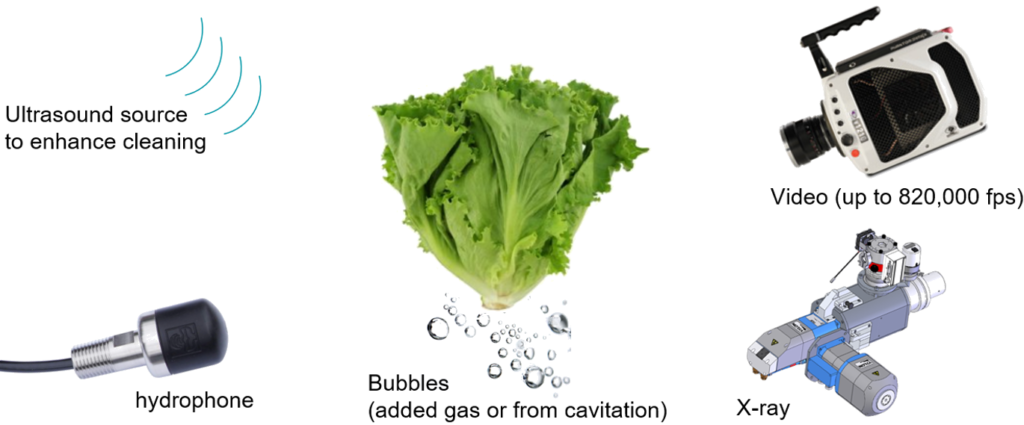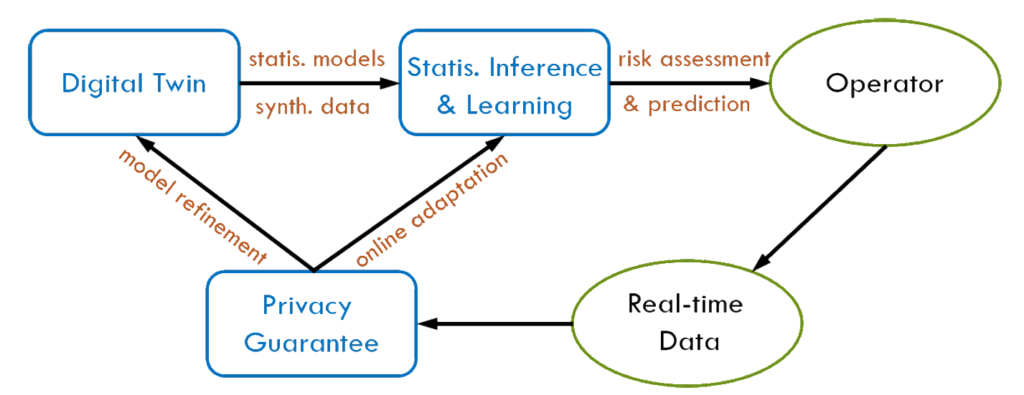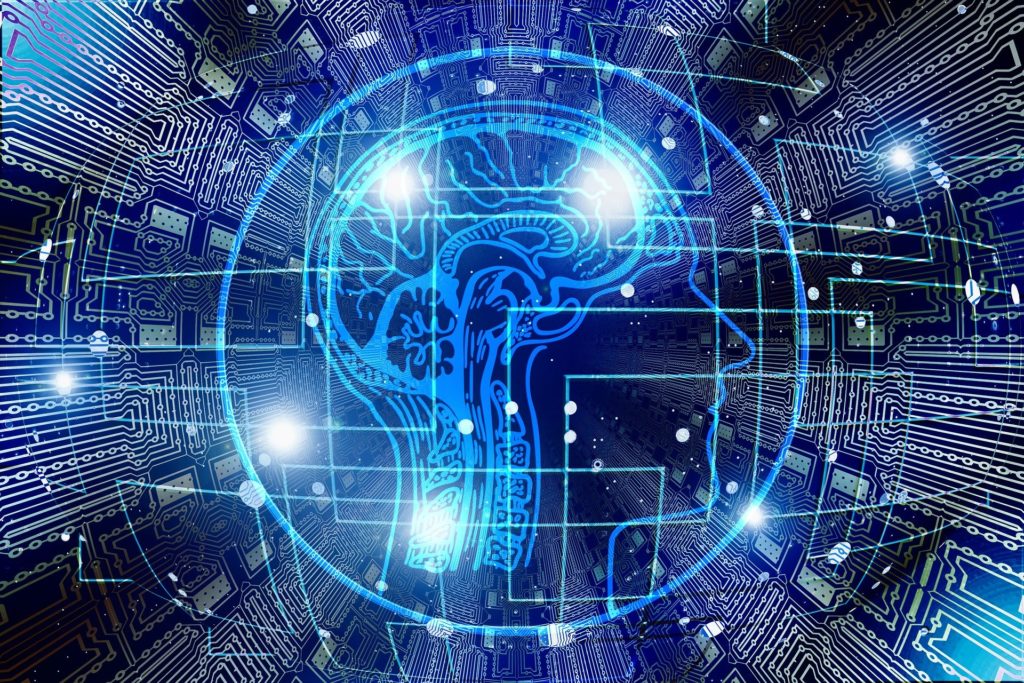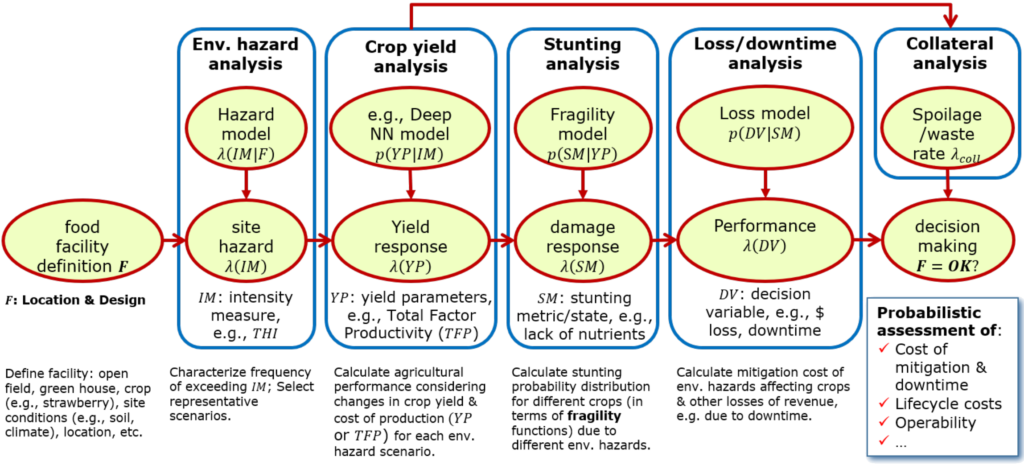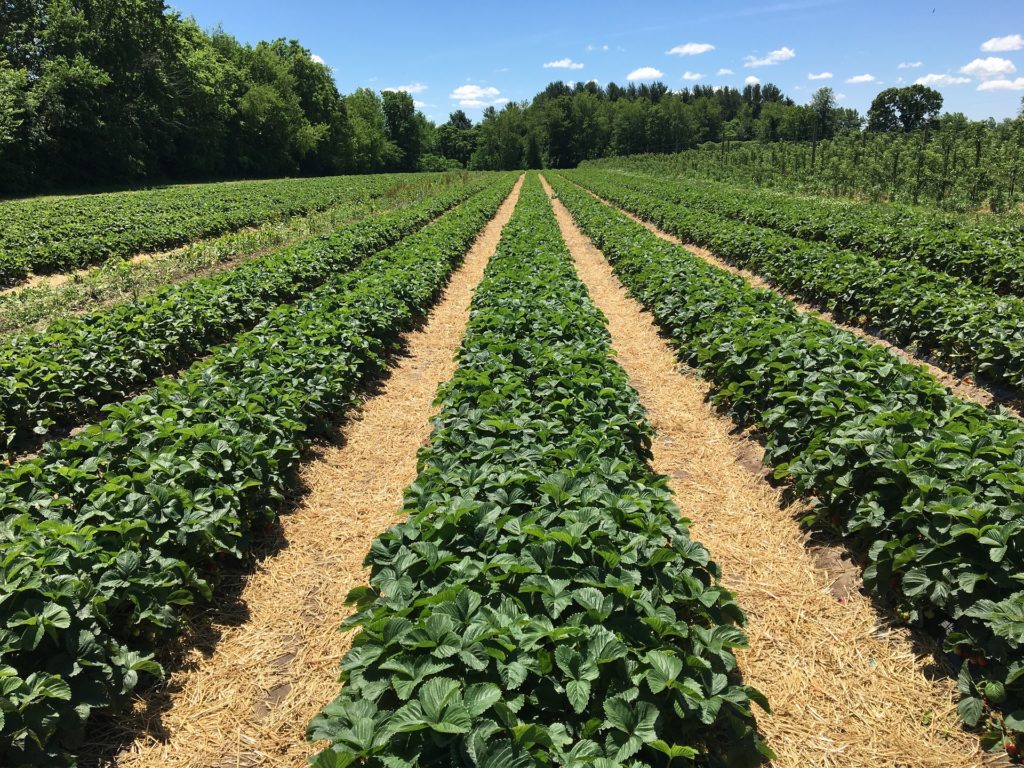ONGOING PROJECTS
Motivation:
There have been dramatic advances in technologies associated with automation across many industries, which have the potential to drastically improve food processing efficiency, food quality and safety. Some approaches are methodical and systematic, while some are ad-hoc and haphazard. In the world of systems engineering, increasingly sophisticated and integrated approaches for AI systems are appearing at a rapid rate. Food production systems have however lagged in the adoption of such technology. One key component to developing a proper AI paradigm is a digital twin of a physical system. Digital twins blend AI, machine learning, software analytics and data to create living digital computer models that can update and change in tandem with their physical counterparts-and ultimately control them in real time. Updates to the digital twin are made continuously in real-time, which necessitates technologies like rapid wireless communication, hyperspectral cameras, sensor fusion and rapid simulations of process behavior.
Goals:
Today, there is no shortage of general simulation software; however, the fundamental limitations are ease-of-use and integration of models with in-field data and easy deployment, tailored for food systems. A core issue across all domains is the ability of a system to adapt to rapid changes in the environment and system capabilities by autonomously modifying operation-with humans in the loop. By developing these tools for food systems researchers, we believe that we can enhance the ability of researchers to conduct research that invariably involve digital twins, as well as benefiting the nation and the world at large.
This work is supported by the USDA/NSF AI Institute for Next Generation Food Systems (AIFS) through the AFRI Competitive Grant no. 2020-67021-32855/project accession no. 1024262 from the USDA National Institute of Food and Agriculture.
